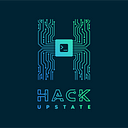At the SU iSchool Blockchain Technology is All In The Family
Written by Upstate Interactive’s Robert Gaudio
Tech trends come and they go, hanging around a few years and disappearing back into obscurity only to be thought of when a “Remember when…” listicle pops up on your timeline. The 2017 surge of ICO offerings will be remembered as a defining moment for finance and technology communities alike. From 50 Cent, “forgetting” he accepted Bitcoin as payment for his 2014 album, to a coin pegged to the price of organic bananas; 2017 was the year of cryptocurrencies. But what if crypto was just the first drop in the bucket?
At Syracuse University’s iSchool, Professor Lee W. McKnight believes that after the dust settles on the crypto boom, “blockchained markets in the Internet of Things will proliferate, and regulatory treatment of cryptocommodities — public and private blockchains — will begin to harmonize.” Blockchain technology’s accurate and verifiable ledger system has far reaching implications as well as real world security issues for monetary security. As we have seen in the early stages of the crypto boom, policymakers struggle to regulate these new technologies leading to cryptoheists and money laundering. With these issues in mind, students and professors at the iSchool have begun to capitalize on non-crypto uses for the blockchain.
One of those students is William McKnight, Lee’s son and a senior at SU. Alongside classmates Kwaku Jyamfi and Sayje Lasenberry, William developed Farm to Flame Energy, a startup that looks to help create sustainable rural energy economies in developing countries. The team trademarked a smokeless, odorless, efficient biomass combustion system can be used to power microgrids. These microgrids are integrated with a cloud-based sensor system to allow for data analysis and real-time monitoring. Farm to Flame now intends to use blockchain as both a cash substitute and a way to secure sensor system on their generator. Connectivity between systems is imperative for their systems to work on a large scale without becoming unmanageable. A blockchained microgrid system like Farm to Flame’s has the potential provide distributed generation power to a series of small communities.
The value of creating a blockchain to deal with energy usage and distribution has an effect greater than just one single product. An idea like Farm to Flame could potentially pave the way for a manipulation-free energy market.
Imagine the shift in power from corporation to individuals, especially those from areas controlled by international energy monopolies. All while providing a reliable energy source to developing communities, this product could simultaneously combat the larger problem in the developing world by protecting individuals and communities from corruption and fraud.
McKnight and company’s inspired startup won over judges at SU’s 2018 Hult Prize campus qualifiers and will be moving on to one of 15 regional finals in March. The prestigious Hult Prize is centered around solving the world’s most complicated social issues through sustainable solutions — their 2018 challenge? Harnessing the power of energy to transform the lives of 10 million people.
Often called the, “nobel prize for students” 2017 winners were awarded $1 million in seed funding to for a ridesharing rickshaw startup service to help transport refugees in Pakistan. Other Hult Prize winners have tackled issues like early childhood development, urban planning, and combating non-communicable diseases.
Farm to Flame was able to jumpstart their submission within the glass walls of the Blackstone LaunchPad, hosted in Bird Library. Being only one of twenty LaunchPads across the globe allows unprecedented access to mentors, funding capabilities and Global Fellows. William says, “Blackstone has really changed the game for entrepreneurs on campus by providing resources and connections necessary to take the first steps in turning an idea into a business.” Specifically designed to help build, scale and problem solve — the LaunchPad was instrumental in building Farm to Flame.
By brining the spirit of ingenuity to campus, partners at Blackstone and the iSchool hope to foster ideas like this to not only compete on a national scale, but to help improve the Syracuse community as well.
Farm to Flame is further proof that the blockchain technology behind the crypto movement has enough staying power to change global infrastructure. Three central themes of security, accountability and distribution that are so attractive about blockchain have lasting potential. People at the iSchool and Syracuse University like William and Lee plan to capitalize on this innovation.
If you’re interested in finding out more about the post-crypto potential for blockchain technologies you can register for Lee’s webinar, After Cryptocurrency: Blockchaining the Internet of Things on Wednesday, February 14.
Sincerest thanks to the iSchool at Syracuse University for sponsoring Hack Upstate XI!
Sign up for Hack Upstate XI, because building tech and breaking tech is good for the soul.
Hack Upstate’s mission is to unite and facilitate collaboration among the greater Upstate New York technology community. In pursuit, we organize hackathons, offer web and mobile development classes, facilitate talks and lectures, and ultimately help align Upstate tech talent with promising employment opportunities. To date, we’ve built a growing network comprised of thousands of Upstate New York engineers and have facilitated dozens of job placements.
